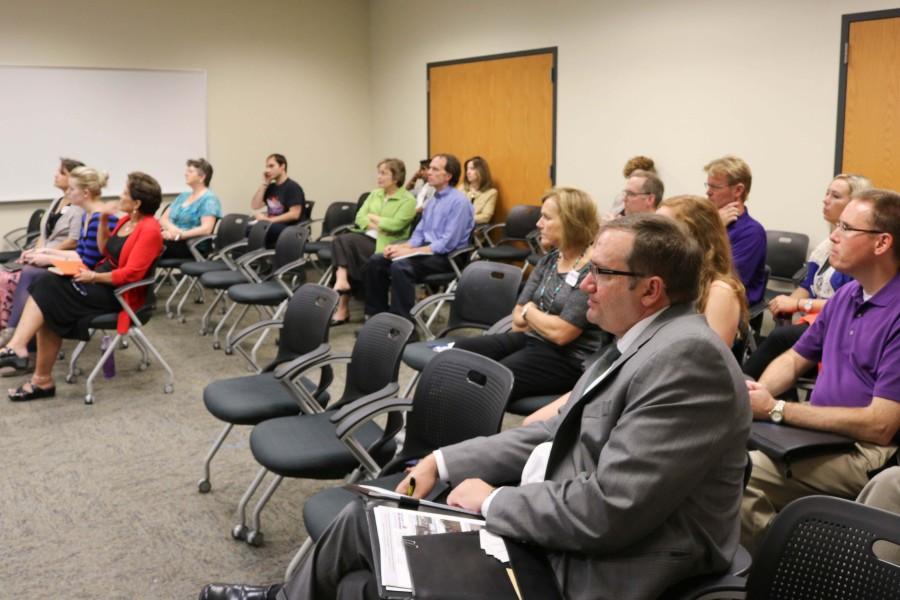‘Student’ has now been redefined
Oct 1, 2015
The definition of “student” has been changed as of Wednesday, Sept. 23.
This is one of three major Student Conduct Code policy changes that were addressed at a presentation held in the Elk Room of the Maucker Union. The presentation was led by student assistance and outreach coordinator, Allyson Rafanello.
Dr. Leslie Williams, Dean of Students, was unable to attend the presentation.
Rafanello said that it directly stated in the previous conduct code that the code should be reviewed “no less than once every five years.”
In preparation to revise the code, the work was divided between the fall and spring semesters. Rafanello explained that the fall semester was mainly looking over the old code and deciding what was missing. The spring semester was the “writing phase” of the code. The old code contained 40 policies, with the revised code containing 80. Some of these implemented conduct codes have been added from the Department of Residence’s policies.
“The decision came to combine the two was because student behavior and expectations fall under the Student Conduct Code policy,” Williams said of adding DOR codes into the revised Conduct Code. “There should not be, in essence, multiple codes that students have to follow. Also, combining the violations also helped us streamline the processes as well. Students have the same expectations as before, they are just more easily identified now.”
One notable change made to the Conduct Code is the definition of what it means to be a UNI student. Rafanello said that originally the code defined a student as a person enrolled in classes at UNI, which has now been expanded.
The new Conduct Code directly states that a student can be defined as: “Persons enrolled at the University of Northern Iowa, persons who are not enrolled for a particular academic term but who have a continuing educational relationship with the University, persons who have been notified of their acceptance for admission, persons who are participating in programs sponsored by the University and another college or university (e.g. community college partnership agreements), although not enrolled at this institution or persons who were defined as a student at the time of their misconduct.”
For example, Rafanello said a student who lived in the UNI dorms buttook classes at Hawkeye Community college would be considered a UNI student under the revised conduct code.
Zach Prouty, junior movement and exercise science major, had mixed feelings about this revised definition.
“I like the fact that they now consider people [to be] students who are accepted or are slowly taking classes, as it allows those who are just joining the university or who are taking their time with their education to feel connected with the campus and student body,” said Prouty. “However, I’m not sure that we should call people who live [on campus] and not taking classes ‘students,’ because they haven’t been accepted or have taken classes at [UNI].”
Another expansion of the code was the subject of illegal substances. Before, the code stated that the “use, possession, manufacturing, dispensation, or distribution of marijuana, narcotics, or other controlled substances” was considered violation of the code. The updated code has been revised to include drug paraphernalia (e.g. pipes, bongs, etc.) as well.
If a violation occurs, it is up to the Dean of Students to determine if the violation should be presented to a Conduct Board (formerly known as Hearing Panels). This name change also came as a part of the revision.
“[The name change] is in line naturally and is part of the conduct process,” said Rafanello.
In years prior, the Hearing Panels would consist of five individuals, but now consists of only three: one student, one faculty member and one assigned Student Conduct Administrator.
During the month of October, there will be conduct board trainings on dates yet to be determined. For more information about the Conduct Code and upcoming events, visit https://www.uni.edu/deanofstudents/








